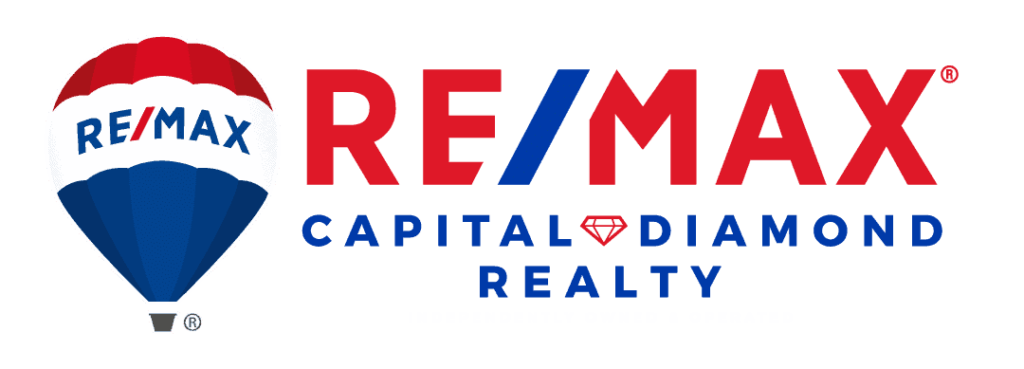Buying A Home
Residential Properties
Buying A Home
For general inquiries please feel free to take advantage of our experience!
Part 1: Financing
The first thing you need to do is get pre-approval on a mortgage. This process will tell you how much you have to spend on a home, and can help you narrow down your search criteria. While this isn’t a guarantee that the financial institution will lend you that amount for the home you want to purchase, it is an important step in knowing how much you can spend.
There are some key terms you need as they relate to your mortgage:
Term:
Mortgage Term is the length of time for the mortgage (generally six months to five years), which you will then have the opportunity to renew at the end of. Otherwise, the full amount remaining would be due at the end of the term.
Amortization:
Amortization is the expected total time it will take to pay off the full amount of the mortgage plus interest. The amortization can be changed based on market conditions and your personal situation over the length of it. The longer you amortize the mortgage for, the more interest you will end up paying.
Payments:
When you make payments on a mortgage, in most circumstances you are paying off both the principal and the interest. This is known as a blended mortgage. The faster you can pay down the principal, the less you will have to pay in interest. There are a number of different strategies you can employ to pay your mortgage off faster, and you should consult with a financial professional about them.
Interest Rates
The interest rate plays a large role in how much you pay each month and over the life of the mortgage. There are two types of rates – Fixed Rates and Variable Rates.
Fixed rates don’t change for the term of the mortgage and come with predictable costs. If Interest rates go down, you could end up paying more than the going rate, but at the same time, if they go up then you will be saving money.
Variable rates change based on the bank’s prime interest rate. If rates go up, more of your monthly payments will go towards paying off the interest, while if they go down, a larger percentage of them will go towards paying down the principal.
Types of Mortgages
Conventional mortgage – the most common type of mortgage. The lender will loan you up to 80% of the appraised value or purchase price of the property (whichever is lower), and you have to supply the remainder up front as your down payment towards the property.
Second or Third mortgages – Additional financing arrangements made on top of an existing mortgage, also secured by your property. This type of mortgage is normally arranged for a shorter term and at a higher rate than your first mortgage.
High ratio mortgage – If you don’t have the 20% down payment to get a conventional mortgage, this type can supply you with as much as 95% of the home’s purchase price or appraised value. In this case, you are required to pay for insurance to cover the lender in case you default.
Choose a Lender
Explore a number of different options to see who can offer you the best deal, including your (and other) banks and a mortgage broker. You need to get pre-approval from a lender at this stage of the process, but you can still switch to another provider before the closing date.
Part 2: Househunting
Know what you want
Know in advance what your needs are, what your wants are, and what your deal-breakers are. Your list of requirements should include the number of rooms you need, amount of space, neighbourhood, amenities, etc. Talk to a real estate professional about what you need, want, and don’t want in a home at the start of the search process.
Pick Your Real Estate, Financial, and Legal Professionals
This investment is a major step in your life and you need the best representation to get you the right deal, help you ask the right questions, and find you the right property. I want to be that representation for you, and am committed to working with you to find you the house that is right for you. Contact me today to find out more about how I can help get you the right home, based on your individual needs and situation.
You will also need to find the best financial professional and lawyer that you can in order to handle some of the other aspects of this process.
Begin your search online
It’s estimated that 94% of people in the market for real estate in Canada search online, and it can be a great place to start looking for your new home. My Listings are updated daily and can be a great way to explore what’s available. Remember to read the descriptions carefully to figure out if a property sounds like it would be right for you, and contact me for more information about it.
Searching in Person
Visit homes in person that seem like they could fit what you’re looking for. Visit homes with a real estate professional like myself, or visit open houses. Just remember that not every property will have an open house, and many open houses can become very crowded and busy, so a real estate agent is the best way to see make sure you can see a property in person, and on your schedule.
Visiting a home in person also gives you a great chance to see the neighbourhood and start to get a feel for it, if you aren’t already familiar with the area. Try to view the area at different times of day and look at the property with what you would do with it in mind, including picturing it with your furniture and decorating style and how you would maintain the place, not with the furniture and housekeeping choices of the previous resident.
Part 3: Making an Offer
When you find the right house that fits your needs, enough of your wants, and you believe that it is the one for you, it’s time to make an offer. You start this with an Agreement of Purchase and Sale document, which is legally-binding and outlines your conditions for purchase. This includes the extras that must be included, your preferred closing date, and other conditions that must be met for the purchase to go through. The seller can then reject, accept, or make a counter-offer. These negotiations can then go back-and-forth and may involve multiple buyers if you are in a bidding war.
If your offer includes the condition of your obtaining financing for the property, that must also be met before the deal can go through. Other conditions like a home inspection, a review by a lawyer, and other stipulations could also be included in the offer stage.
Part 4: Closing
Once you have an agreement on an offer with the seller and all of the conditions have been met, the closing procedure can begin. In the final few days before taking possession of a house, there will be a lot of paperwork, fees to pay, and you will need to pick up your keys. Your lawyer, financing partner, and real estate professional will be working closely with you to make sure everything gets finished.


